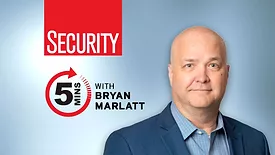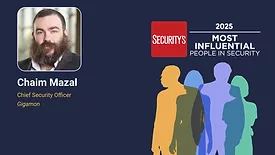Home » Keywords: » CISO
Items Tagged with 'CISO'
ARTICLES
Global News & Analysis
CISO Salaries Continue to Rise Despite Economic Uncertainty
January 28, 2026
Special Report: Most Influential People in Security 2025
Chaim Mazal — Growing into a Security Career
Chief Security Officer, Gigamon
September 2, 2025
Special Report: Women in Security 2025
Dr. Joye Purser: Safeguard Against Shifting Risks
July 7, 2025
Sign-up to receive top management & result-driven techniques in the industry.
Join over 20,000+ industry leaders who receive our premium content.
SIGN UP TODAY!Copyright ©2026. All Rights Reserved BNP Media.
Design, CMS, Hosting & Web Development :: ePublishing













